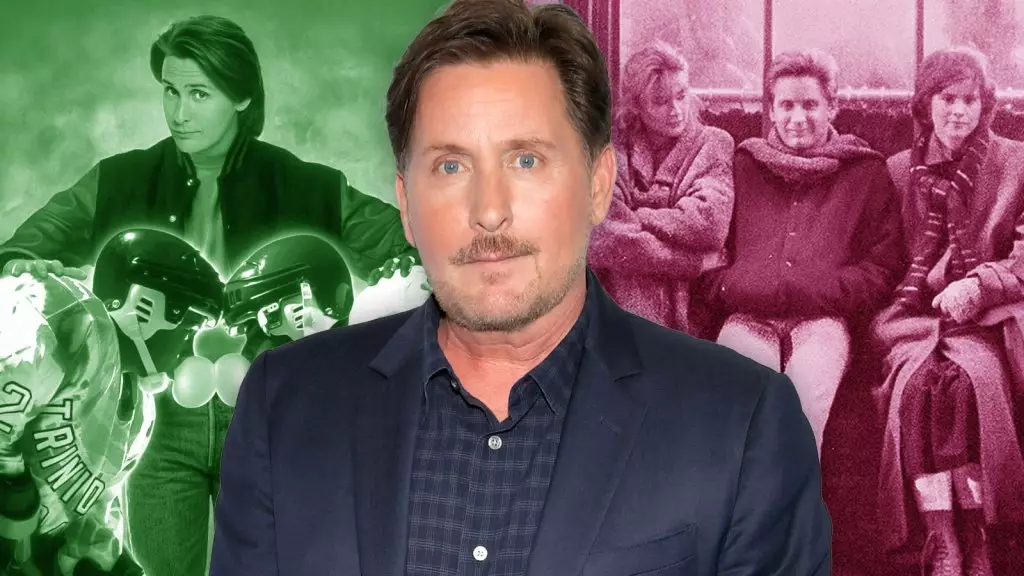In a world where nostalgia reigns supreme, Emilio Estevez’s recent revelations about the Mighty Ducks franchise evoke both excitement and frustration. Estevez, a talented actor and writer, is addressing the missteps of his beloved series with a desire for redemption. His insistence on creating a new sequel—*Mighty Ducks 4*—demonstrates a powerful urge to reclaim the spirit of what made the original films cherished. Yet, Estevez’s struggles with the contemporary Disney machine highlight a dire predicament faced by many artists: the tension between creative integrity and corporate mandates.
When Estevez mentions the intent to form an all-girl team in his script, it shines through as a profound acknowledgment of evolving societal values. By bringing in characters like Josh Jackson’s and Kenan Thompson’s to create a more inclusive narrative, Estevez offers a refreshing narrative not just for the franchise, but for media as a whole. Sadly, Disney’s dismissal of such a vision reveals an unfortunate propensity for studios to cling to stale formulas rather than fostering innovative ideas. Estevez’s frustration is palpable; he acknowledges a desire for things to be “charming, and contemporary, and cool.” Instead, he faces a daunting wall of corporate resistance.
A Journey Through the Landscape of Acting
Moreover, Estevez’s reflections on his time filming *St. Elmo’s Fire* offer a compelling glimpse into the highs and lows that define the acting journey. His stark contrast between John Hughes’s accommodating direction and Joel Schumacher’s whirlwind of insecurity is telling. It serves as a vital lesson; the way directors conduct themselves behind the camera can shape not just the performances delivered but also the morale of the cast.
For Estevez, Schumacher’s notoriously chaotic environment was not just a challenging experience—it was a formative one. He resolutely claims that he never wants to be that kind of director. It’s a bold statement that underscores a liberating truth: the best leaders foster collaboration rather than fear. Estevez’s understanding that art thrives in an atmosphere of encouragement rather than oppression is a refreshing take in an industry often plagued by toxic dynamics.
Revisiting Resilience in Creative Projects
Estevez’s willingness to confront the failures of *Game Changers* and seek to rectify them proves that he is not just a nostalgic figure trying to cash in on the past. He genuinely cares about the legacy of the Mighty Ducks. Those who might see him as merely clinging to former glories would do well to recognize that his ambitions extend beyond just reviving an old franchise; they tap into a deeper desire for artistic expression.
In a cultural climate where diverse representations are gaining traction, Estevez’s inclination toward reform is a welcome one. However, it highlights an unsettling truth: the constraints of mainstream Hollywood can stifle creativity at crucial junctures. His resolve to push forward despite setbacks is emblematic of the broader struggle many artists, particularly in the entertainment industry, face. It is a testament to the resilience needed to navigate a landscape fraught with challenges, yet it shines a light on the possibilities that arise when creators refuse to give up.
Emilio Estevez is not merely reminiscing; he is paving the way for an evolution of his iconic characters. His journey reflects a broader transformation—an urgent call for innovation within the expected boundaries of commercial viability.

